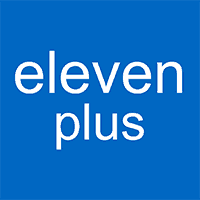Stakeholders in The 11 Plus Exam
The agencies, authorities and stakeholders that are involved in the 11+ exams are possibly more varied than you may realise. There are a few that you are going to need to know of and understand what part they play in the process.
Let’s take a look at some of the main ones to know.
Future Stories Community Enterprise (FSCE)
Unlike traditional exams that follow a specific curriculum, the 11+ test from FSCE aims to evaluate a broad spectrum of skills crucial for excelling in secondary school and life thereafter. Designed to be inclusive, it accommodates students from diverse educational and social backgrounds.
The FSCE 11+ examination is divided into three key sections:
- A test in Mathematics
- An English language examination
- An exercise in Creative Writing
Currently, the FSCE 11+ test is utilised as an admissions metric by three grammar institutions: Reading School, Colyton Grammar School, and Chelmsford County High School for Girls.
Study Guidelines for the 11+ FSCE Examination
Colyton Grammar School
Situated in Devon, Colyton Grammar School is a selective state-run institution with a history of high academic achievements, consistently ranking among the UK’s top ten state schools.
Chelmsford County High School for Girls –
- now moved to The Future Stories 11 Plus exam paper format
Located in Essex, Chelmsford County High School for Girls is another selective institution for girls that employs the FSCE 11+ exam as part of its admissions process. The school is celebrated for its solid academic record.
Reading School
Reading School has a strong affiliation with FSCE and is acknowledged as one of the premier grammar schools in the United Kingdom.
GL
GL or Granada Learning is an 11+ exam board that has been working on 11+ exams for over twenty years. Before 2001 it was known as the National Foundation for Educational Research or NFER but it changed when it was bought by Granada Learning.
These GL assessment papers are set at around the 45-minute mark and the questions are usually presented in the multiple choice format, although they can also be presented in a more standard format. The questions are provided with sufficient time for the child to answer the questions. This doesn’t necessarily mean that the exam is easier than CEM, however, it does mean that this is an exam that can be prepared for in a shorter time than it may take to prepare for CEM and the time restrictions are often more manageable for children.
CSSE
Schools in both Essex and Southend adhere to the Consortium of Selective Schools in Essex (CSSE) guidelines for their 11+ exams, aiming to identify and admit academically capable students into selective grammar schools within the county. The CSSE, through a standardized 11+ examination, manages and facilitates the selection process to ensure fairness and consistency across all participating schools.
The 11+ examination under the CSSE comprises two papers, each set at 60 minutes; one paper focuses on English, while the other assesses Maths proficiency. These papers incorporate a mix of multiple-choice and standard format questions, providing a comprehensive evaluation of a student’s aptitude and academic potential. Although the pass mark is generally set at a minimum of 303, it’s imperative to check with individual schools administering this exam to ascertain if this benchmark applies to them. The competitive nature of the 11+ exam reflects the high academic standards and rigorous education provided by the selective grammar schools in Essex and Southend, thus necessitating a thorough preparation from aspiring students.
SET
SET stands for the Selective Eligibility Test and is the first stage 11 plus exam that is often used by the London Borough of Sutton. Two tests are multiple choice papers. One that covers maths and one that covers English.
They are each 45 minutes long and require there to be a break between the two. They do not include verbal reasoning or non-verbal reasoning and both of them are based on things that should have been learnt in the Key Stage Curriculum.
To give your child the best chance possible of passing their 11+ exams, it is important to take the time to research not only the schools that you want to consider but also the type of admission exam and process that your child will need to move through. That way you can be best informed on what to expect and ensure that they feel prepared and ready.
Introduction to 11+ Practice Papers
Subjects Covered in 11+ Practice Papers
Regional Variations in 11+ Exams
Stakeholders in The 11 Plus Exam
Future Stories Practice Papers







